detail profile okacha touita
Peran Yang Di Mainkan Okacha Touita
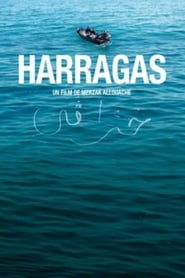 Set in the northern Algerian port...
Set in the northern Algerian port...Harragas 2010
Set in the northern Algerian port city of Mostaganem. The title refers to the hordes of refugees, the 'Harragas', who smuggle themselves out of the country via any means possible. Here we meet one such group, Rachid, Nasser and Imene who pay a smuggler, Hassan, to take them to Spain in his rickety boat. Along with a group of African and Arab migrants, they are risking all they have to cross the stormy Straits.
 In a workingclass immigrant neighborhood slated...
In a workingclass immigrant neighborhood slated...Le Rescapé 1986
In a working-class immigrant neighborhood slated for demolition, Jo, the son of Ali, known as the Rescuer from the Algerian war, lives idle and delinquent, committing small assaults to pay for his drugs. One day, while attacking Slim's bar, he is arrested by Ben, a young beur cop torn between his roots and the imperatives of his mission to maintain public order. Giving in to the respect and friendship he feels for Ali, Ben agrees to release his son. But alas, far from calming down, Jo drifts deeper into violence, until the inevitable drama.
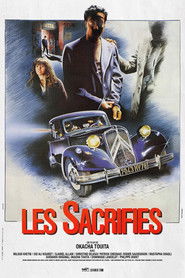 In 1955 a year after the birth...
In 1955 a year after the birth...Les Sacrifiés 1983
In 1955, a year after the birth of the National Liberation Front (FLN), Mahmoud was expelled from Algeria by the colonial authorities who feared his revolutionary speeches. At the age of 27, he arrived in the Algerian slum of Nanterre. Roughly questioned by FLN activists, in disagreement with the Algerian Nationalist Movement (MNA) who wanted to recognize theirs, he was then accepted as the local hairdresser and shoemaker. Subsequently, he became a driver during anti-MNA expeditions. Accepting increasingly dangerous missions, he is imprisoned by the French police and once again undergoes interrogations and special treatment by the police which will definitively undermine his sanity. One day, he no longer recognized his companions, and when joy broke out among the FLN militants, at the announcement of the signing of the Evian Accords, Mahmoud remained alone, frozen in an attitude of refusal, walled in his madness. Algeria has just won its independence.
 Each of you is an ambassador...
Each of you is an ambassador...The Ambassadors 1975
“Each of you is an ambassador, and we are sure that each of you will be the best ambassador of our country.” This is how the film begins; a speech to emigrant workers for France. Salah left his three sisters and his mother to become an ambassador, going to work on a Defense site, wading in the mud, he works with a jackhammer. Salah wanders in search of work and housing. Coming up against racism from the owners claiming the respectability of the building and the good neighborhood, he finds himself in a hotel in the Goutte d'Or district. The body of Mehdi, friend of Salah, was found in the Canal Saint-Martin, murdered by a fascist commando, and Ali died of a bullet, killed by a racist janitor. Faced with crimes that remain unpunished, Salah and his friends organize, unite with the French working class to defend their lives and their right to work.
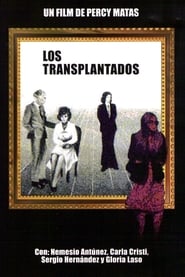 A rightwing family decides to exile...
A rightwing family decides to exile...Les transplantés 1975
A right-wing family decides to exile themselves to Europe after Salvador Allende's victory during the presidential elections of 1970; only to find themselves losing their comfortable socio-economic status and be subjected to a dramatic proletarianization that will lead them to all kinds of struggles.
 This is the only feature directed...
This is the only feature directed...The Big Departure 1972
This is the only feature directed by the famed French painter and sculptor Martial Raysse. In keeping with the revolutionary spirit of the time, the movie has no plot to speak of and appears to have been largely made up on the spot. We follow the cat man into a bizarre fantasy universe presented in negative exposure that reverses color values (black is white and vice versa) and written words. The cat man steals a car and then picks up a young girl he promises to take to “Heaven.” Heaven turns out to be a country chateau inhabited by several more animal mask wearing weirdoes...

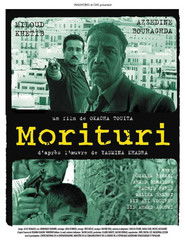
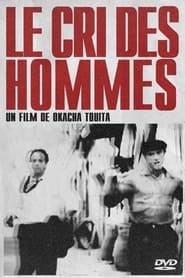 1957 the town of Mostaganem Algeria the...
1957 the town of Mostaganem Algeria the...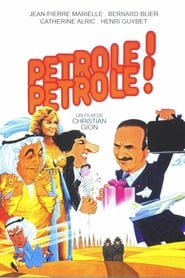 Le PDG dune importante socit ptrolire...
Le PDG dune importante socit ptrolire...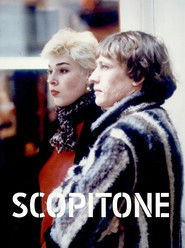
 A musical fresco retracing the lives...
A musical fresco retracing the lives...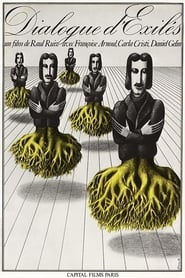 Chilean exiles in Paris discuss the...
Chilean exiles in Paris discuss the...